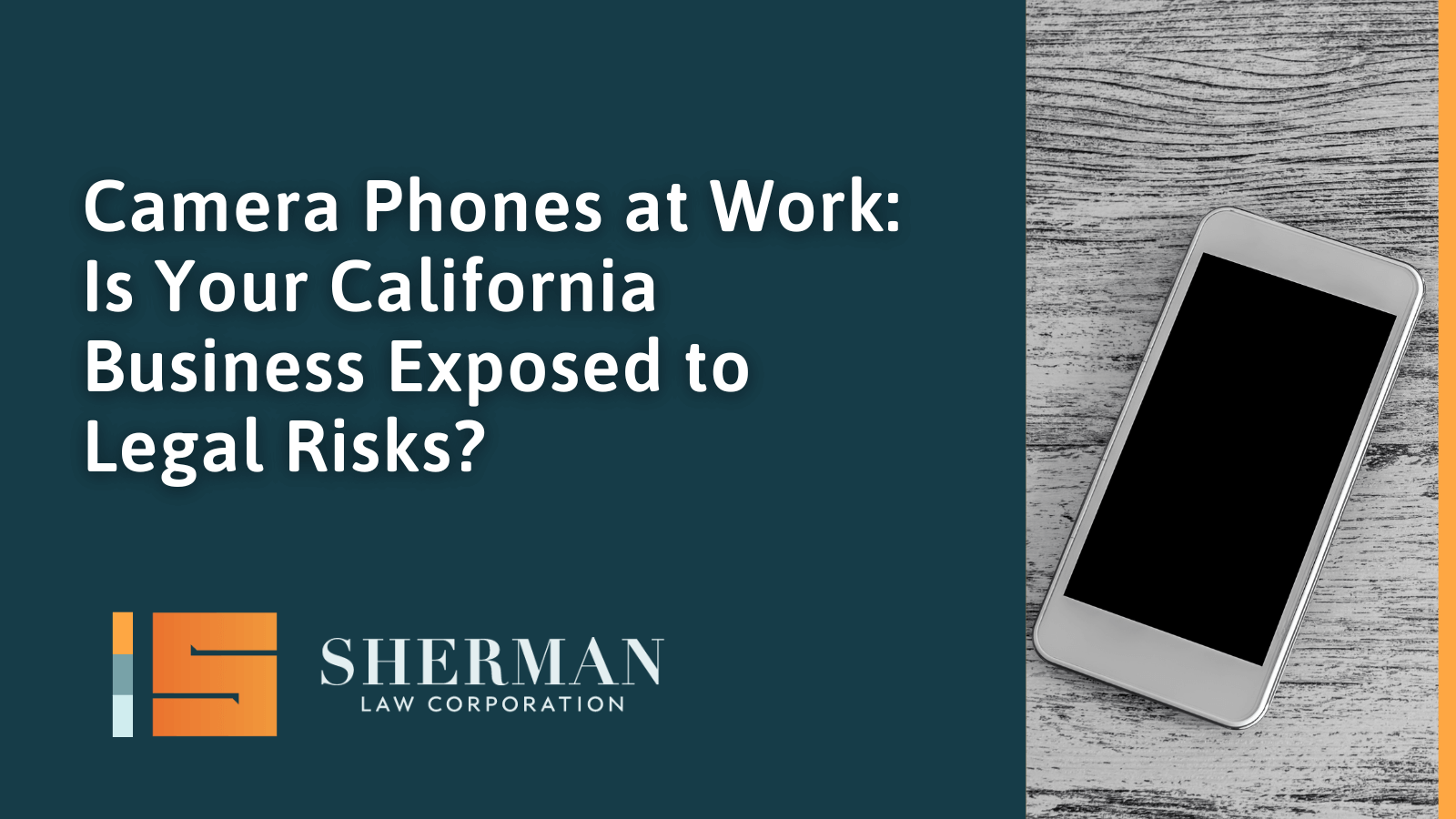
Before smartphones, emails, text messages and other forms of electronic communication, I would ask during investigations of sexual harassment claims whether the interviewee had any pictures or video from holiday parties, or if they kept hallmark cards that they received from the complainant to refute that the alleged conduct was unwelcome. Absent such evidence, it was often a he-said/she-said.
Today, the vast majority of evidence I am provided in harassment cases consist of smartphone pictures and video, text, or voicemail messages, e-mails and any other form of electronic communication available. Cameras are particularly troublesome because they are often undetectable and with one click pictures and video will lead to mass distribution.
As an employment lawyer with over two decades of experience in California, I’ve witnessed a dramatic shift in the types of evidence presented in workplace disputes. At Sherman Law Corporation, we help employers navigate these complex issues, including developing comprehensive policies that protect both the company and its employees. From our offices in Beverly Hills, we provide guidance and representation to businesses across various industries throughout California.
Legal Risks of Camera Phones in the Workplace
The use of camera phones in the workplace presents numerous legal risks for employers, including:
- Misappropriation of trade secrets: Employees could use their phones to photograph or record confidential company information.
- Intellectual property infringement: Employees might capture and share copyrighted or trademarked materials without authorization.
- Unfair competition: Employees could use their phones to gather information about competitors.
- Privacy violations: Employees could take photos or videos of coworkers or customers without their consent, leading to potential legal claims.
- Direct Evidence of Harassment, Discrimination, Retaliation, Bullying or Violation of Company Policies: Camera phones can capture inappropriate behavior in the workplace, providing concrete evidence of violations like harassment, discrimination, or bullying. This footage can be crucial in investigations and legal proceedings.
- Corporate Espionage: Employees could use their camera phones to steal sensitive company information, such as research data, product designs, or financial records, potentially benefiting competitors or causing harm to the company.
- Violation of the National Labor Relations Act (NLRA): Employers must be cautious when using recording devices, including camera phones, to monitor employees. The NLRA protects employees’ rights to discuss wages, working conditions, and unionization efforts. Secretly recording such activities could violate the NLRA.
- Threats to Confidentiality and Security of Personal Information: Camera phones can inadvertently capture sensitive personal information, such as passwords, credit card numbers, or private conversations, posing a security risk if this data is lost, stolen, or misused.
- Disclosure of Personal Health Information (PHI): In industries like healthcare, using camera phones can lead to accidental or intentional disclosure of patients’ protected health information, violating HIPAA regulations and patient privacy.
- Loss of Employee Productivity: Unrestricted use of camera phones can lead to distractions, decreased focus, and reduced productivity as employees spend time on personal calls, social media, or other non-work-related activities.
Workplace Camera Policy: Factors to Consider
In evaluating whether to allow cameras at all, employers need to evaluate the ways they can be used properly for business needs and weigh it against the above-noted possible misuses.
Businesses with significant privacy concerns, such as a health spa or gym, or those with substantial amounts of confidential information, may decide on a total ban.
Other business may take a more moderate approach and simply restrict the devices from particular uses and areas, such as locker rooms, restrooms, and research and development areas.
Avoid Legal Risks: Let Lisa Sherman Help You Develop a Camera Phone Policy
For more information on cellphone policies in the work place, please contact Lisa Sherman at lisa@sherm-law.com or at (323) 488-2087.
| Related Articles: |




